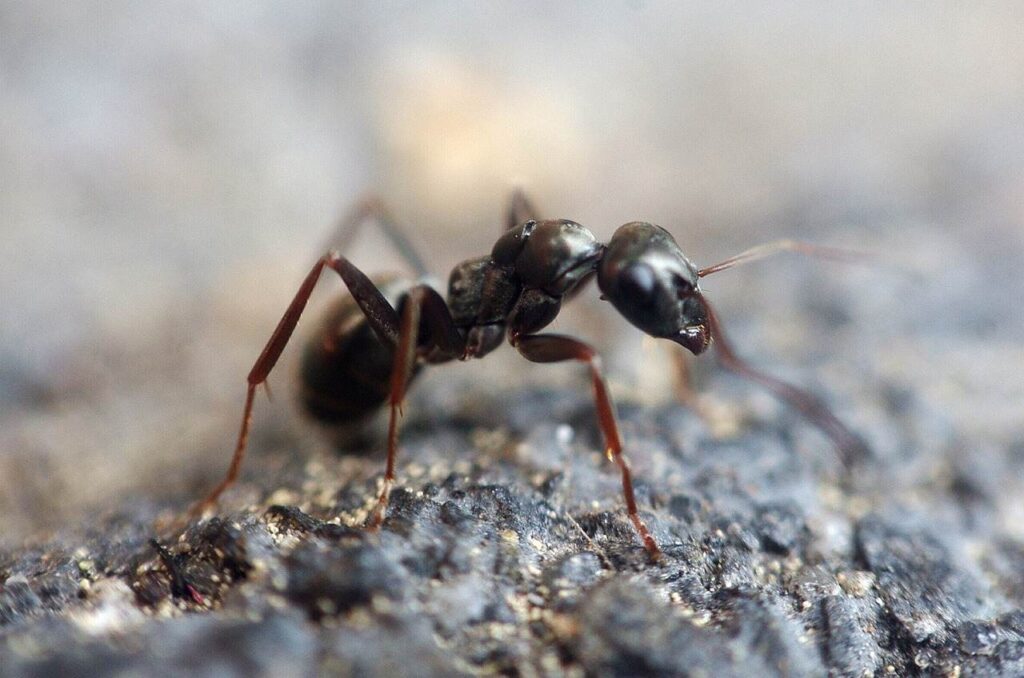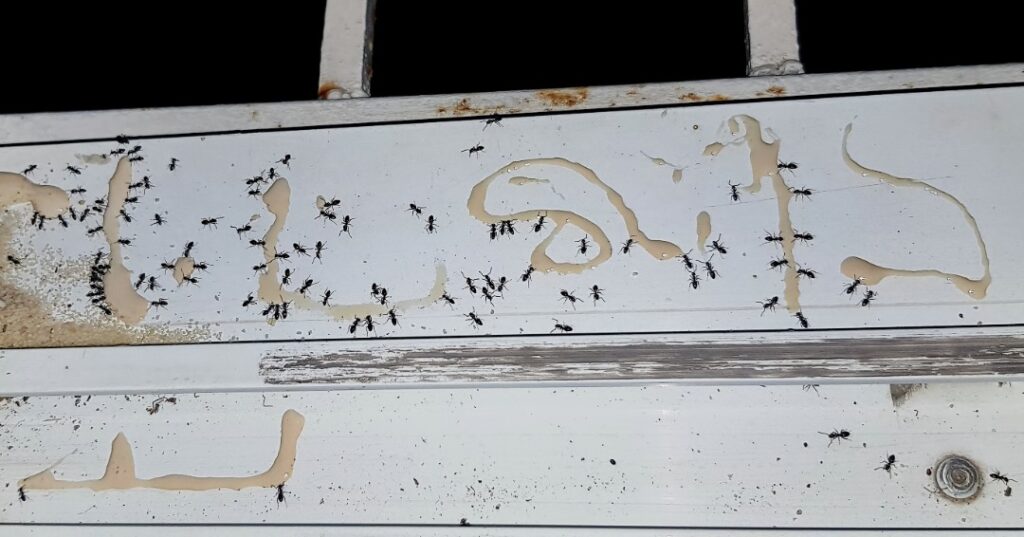If you have noticed small brown ants that emit a strong, odorous smell likened to that of a rotten coconut when you crush or step on them in or around your property, especially in the fall or after periods of rain, there is a good chance you have an odorous ant problem.
What Are Odorous House Ants?

Tapinoma sessile (aka Odorous house ants) are brown to blackish colored ants that get their name from the foul smell that is released when their insides are spewed. They range from about 1/6 to 1/8-inch in size, and they are commonly found throughout many regions in the U.S.
This species of ants typically thrive in open dirt as well as under various structures around your home, such as beneath stones and piles of firewood or lumber, especially termite damaged wood, or inside bricks and even honeybee dwellings. However, during periods of rain and the fall, they will enter your home in search of warmth and food where they will accumulate colonies of up to 10,000 ants or more, including many queens. Once inside your home, they are often spotted near various water sources, including water heaters, plumbing, and under toilets.
In their natural habitat, these ants mainly prefer the sugary, sweet taste of honeydew secretions left by bugs on stems and leaves after feeding as well as floral nectar. However, they will also feed on both dead and living insects, as well as seeds and other plant secretions. Indoors, they will feed on a number of available foods, including grease.
What Risks Do Odorous House Ants Pose?
Odorous ants on their own are not inherently dangerous; however, like many outdoor pests that make their way into your home, they do carry germs and other contaminants on their legs that can be transmitted to your food and other surfaces, which can make the occupants ill. Therefore, you still don’t want them in your home.
Treating Your Odorous Ant Problem
First thing’s first, be sure there are no cracks, gaps, or other openings around your property’s foundation, which can permit odorous ants to enter your home. If there are tree branches touching or very close to your property, you should cut them back. Odorous house ants will often use the branches to make their way inside. You should also avoid storing construction materials, such as lumber and many other types of wood, near your property, which is where this ant species likes to build their nests.
Inside your home, eliminate any signs of moisture, such as standing water and leaking pipes, etc., which can attract odorous ants.
Once odorous house ants have accumulated a colony, they are very difficult to treat. They are also creatures of habit, which means they often return to the same location each season. Therefore, if you spot odorous ants anywhere within the proximity of your property, it is recommended you contact a professional to address the issue before it worsens.
Our Yuba City Pest Control technician will employ one or multiple safe, proven effective odorous ant treatments, such as bait, which ant workers transport back to the colony and contribute to their own demise. They are also trained to locate their entry points and can conduct a thorough inspection of your property to ensure the proper precautions are taken to rid you of your ant problem once and for all. Pre-season inspections are also recommended to help keep the ants from returning.

